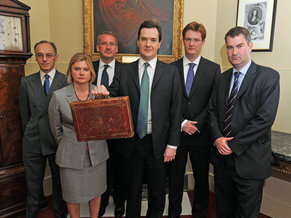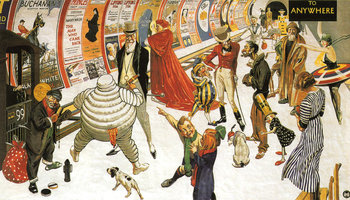
Agent
Represent the interests of others.
Aftermarket
Services to upgrade, customize, maintain and repair an asset.
Value Added Reseller
Add value to something and resell it.
Arbitrage
Taking advantage of price differences in markets.
Wholesale
Buying from producers and selling in bulk.
Cooperative
An organization of producers that agree to sell as one to increase negotiating power e.g. farmers cooperative.
Ecommerce
Selling through digital channels.
Bricks and Clicks
Selling through both a physical shop and ecommerce.
Reseller
Buying and selling without adding value to the product or service.
Parallel Import
Importing things without any agreement with the producer to do so.
Trading House
Import / export firms with significant capabilities in areas such as customs, logistics, localization and distribution.
Retail
Selling to the end-consumer.
Broker
Executing a transaction on behalf of another party e.g. a real estate broker who sells units in a condominium.
Market Maker
Providing liquidity to a maker by providing buy/sell orders.
Market
Provide a venue or service that allows buyers and sellers to close sales.
Auctions
Providing a competitive market based on bids.
Bespoke
Products and services commissioned by a customer to their requirements.
Barter
Exchanging products and services without money.
Professional Services
Offering the services of a professional such as a lawyer or dentist.
Personal Services
High touch services for consumers such as pet care services.
Research Services
Offering research and analysis such as lists of sales leads for an industry.
High Touch
A service that involves much personal attention e.g. a personal trainer.
Business Outsourcing
Managing a business process for another business e.g. a call center service.
Managed Services
Services that are maintained and managed such as a email service that takes care of things like security and capacity management.
Insurance
Taking on risk for a fee.
Club Goods
Providing access to a large asset for a fee e.g. movie theaters.
Collective Business System
An organization that represents the interests of an industry, profession or place.
Reputation System
A service that allows consumers to review, rank and discuss products and services.
Complementary Goods
Producing and selling things that increase the value of another firm's goods.
Concession
Buying the right to sell at a prime location that may have captive customers.
Consumer Collective
Pooling the purchasing power of consumers to get a better deal.
Consumer Goods
Producing products for consumers. A massive industry.
Fast Moving Consumer Goods
Producing consumable products that consumers need to regularly repurchase.
Consumer Services
Services aimed at consumers. The largest industry in most advanced nations.
Consumer to Business
Individuals that sell to businesses e.g. a photographer that licenses photos to an advertising agency.
Consumer to Consumer
Individuals selling to individuals e.g. cutting your neighbor's grass for a fee.
Craft
Producing things with significant labor and creativity.
Convenience Services
Services that compete by being more convenient e.g. a convenience store that competes by being closer to the consumer.
Convenience Products
Products that reduce work for the consumer e.g. precooked meals.
Cottage Industry
Small scale production from your home.
Creative Services
Services that produce original non-standard results such as design and commercial art.
Cutting out the Middleman
Producers selling directly to consumers.
Designer Label
A fashion brand based on the personal brand of a designer.
Digital Goods
Products that have no physical presence such as a downloadable video game.
Ebusiness
Any business that occurs over digital platforms e.g. a digital advertising platform.
Fast Fashion
Cheap but trendy fashions.
Financial Intermediation
Services that facilitate saving, borrowing, investing and financial transactions.
Gig Economy
Firms that treat labor as if they were partners to try to avoid the costs of employing people.
Haute Couture
High-end fashions that are custom designed or at least custom fitted.
Intermediaries
Middlemen involved in the distribution process between producers and end-customers.
Long Tail
Technologies that allow everyone to compete with professionals e.g. a video sharing platform.
Media
Producing and marketing of entertainment, information and news such as podcasts or vlogs.
Micropayments
Services that allow for very small purchases such as a small fee for listening to a song.
Niche
Serving small markets with unique needs.
One-stop-shop
Providing variety and consistent stock so that people can get their shopping done in one place.
Original Equipment Manufacturer (OEM)
Making parts or software that are used in another firm's products.
Product-as-a-Service
Providing physical things for a monthly fee e.g. a solar panel service.
Productization
Commercializing an internal business capability.
Razor And Blades
Selling a cheap item that requires expensive supplies e.g. a printer with cartridges.
Reverse Razor And Blades
Selling an expensive item that requires cheap supplies e.g. phones/mobile apps
Recommerce
Selling or renting used goods and existing assets.
Reuse Economy
Reuse services such as repair cafes and upcycled products such as crafts from ocean plastic.
Store Within A Store
Setting up shop in another shop or on an ecommerce platform.
Two-sided Market
Connecting buyers and sellers for a fee e.g. an advertising platform that connects advertisers and publishers.
Utility Computing
Selling access to computing resources based on usage. The business model behind most cloud computing.
White Label
Producing a product or service that is designed to be branded and marketed by third parties.
Franchising
Selling the rights to operate a complete business for a fee.
Turnkey
A franchise that is almost completely delivered by the franchisor.
Subscriptions
Recurring charges for the ongoing delivery of products or services.
Consulting
Offering labor or advice. Often integrated into a firm and long term.
Freelancing
Similar to consulting but often work independently on a project basis.
Education
Promoting a product or service for a performance-based fee.
Attention Economy
Selling media space that is likely to attract the attention of a target audience.
Night Economy
Producing social and compelling experiences at night such as a concert or nightclub.
Culture Industry
The culture industry offers access to culture and profound elements of the human experience e.g. a museum.




















































